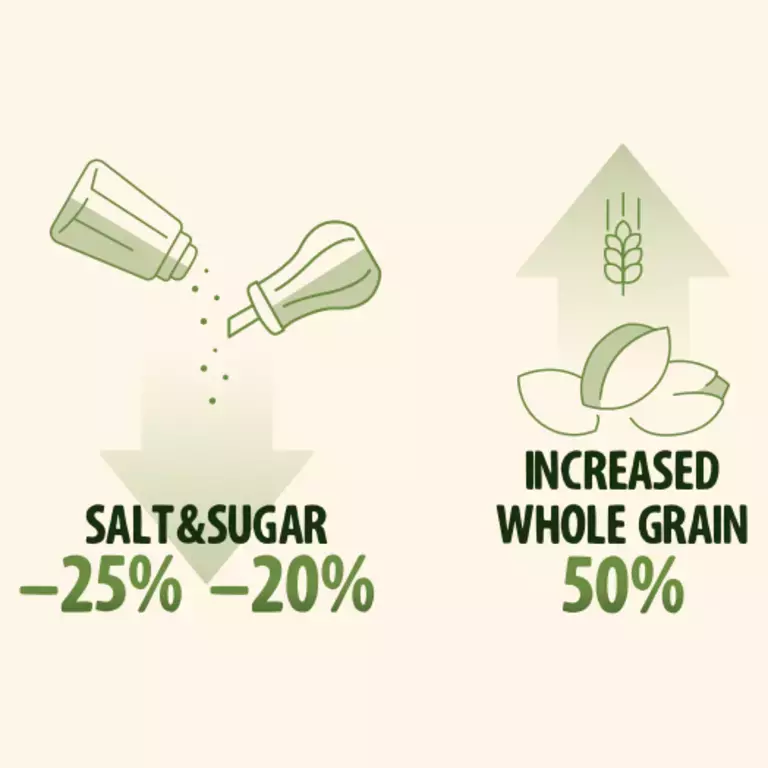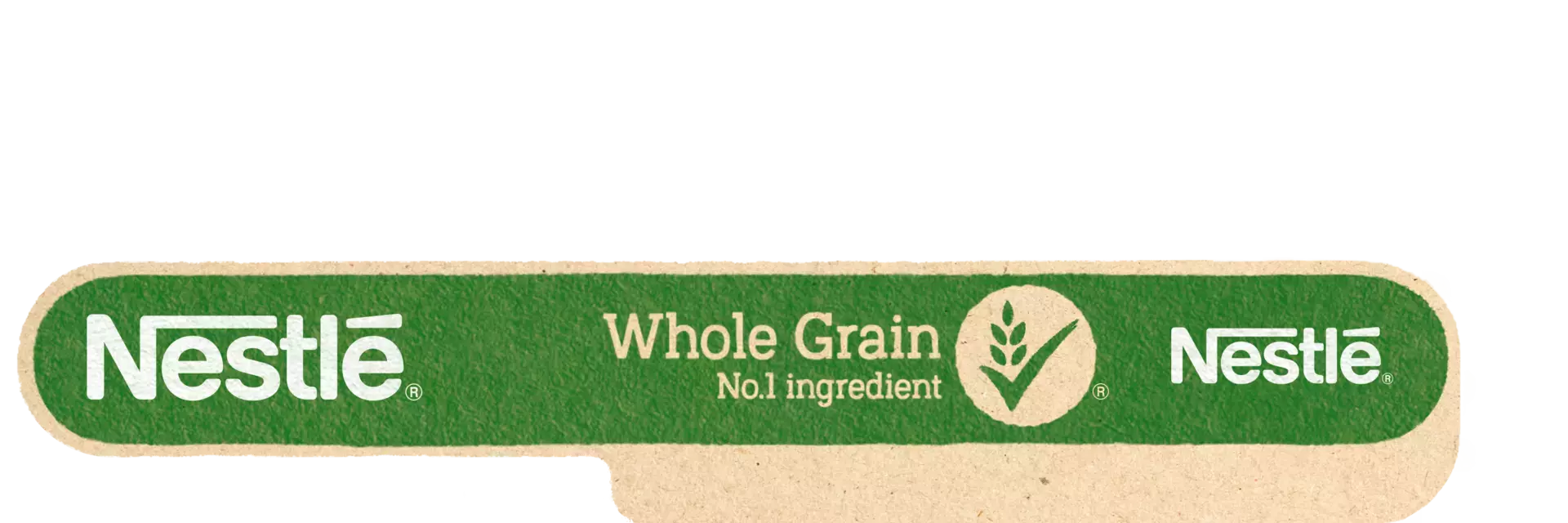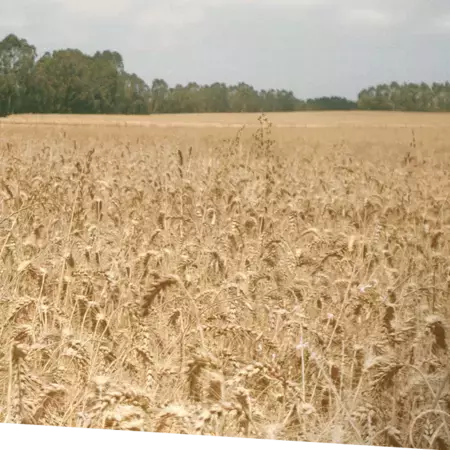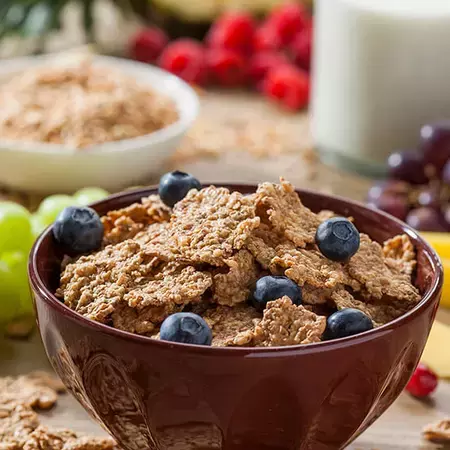Over the past 18 years, we’ve been on a journey to improve our recipes to make breakfast even better. We have worked on reformulating our product portfolio, focusing on increasing whole grain and fibre while significantly reducing sugar and sodium. And doing so while keeping the same great taste that our customers love. Take a closer look at our achievements:
Our Renovation Journey to Make Breakfast Better

MAKING BREAKFAST BETTER SINCE 2003
- More than 90% of our breakfast cereal recipes has WG #1 ingredient.
- Since 2003, we’ve been gradually reformulating our recipes to increase whole grain, reducesugar and salt and remove artificial colours and flavours.
- Since 2003, we have increased the use of whole grains by 50%.
- More than 99% of our ready-to-eat breakfast cereals for children and teenagers have whole grain as the main ingredient. (Numbers based on % of volume)
- Today, more than 74% of our cereals have equal to or less than two teaspoons of sugar (7.5g) per 30g serving.
- 95% of our cereals have less than 450mg of sodium per 100g.
MORE WHOLE GRAINS & FIBRE
Our renovation journey means that most of our cereals are now more balanced and nutritious. They contain more whole grain and fibre, with reduced amounts of salt and sugar, and are free from artificial colours and flavours. All this whilst keeping the same great taste. We believe that breakfast is the most important meal of the day. We make over 100 different cereals - giving everyone an option for a delicious, convenient and nutritious start to the day.
WORKING WITH LEADING EXPERTS
Why? To further reduce levels of salt and sugar, while increasing the amount of whole grain in each of our tasty cereals. In 2018 we worked with the IBRI, led by world-renowned nutrition experts, to help us define what a traditionally better breakfast looks like - find out more on this page.
HELPING YOU TO MAKE HEALTHIER DECISIONS
As part of our ongoing commitment to making breakfast better, we’re constantly looking at new ways to help everyone make informed decisions about what they eat. At Nestlé Breakfast Cereals we understand that whole grain is recommended as an important part of varied, balanced diet. This is why all of our cereals carrying the Green banner have minimum 8g of whole grain per 30g serving. When you see the Green banner, you can be sure that whole grain is the number one ingredient in that product.
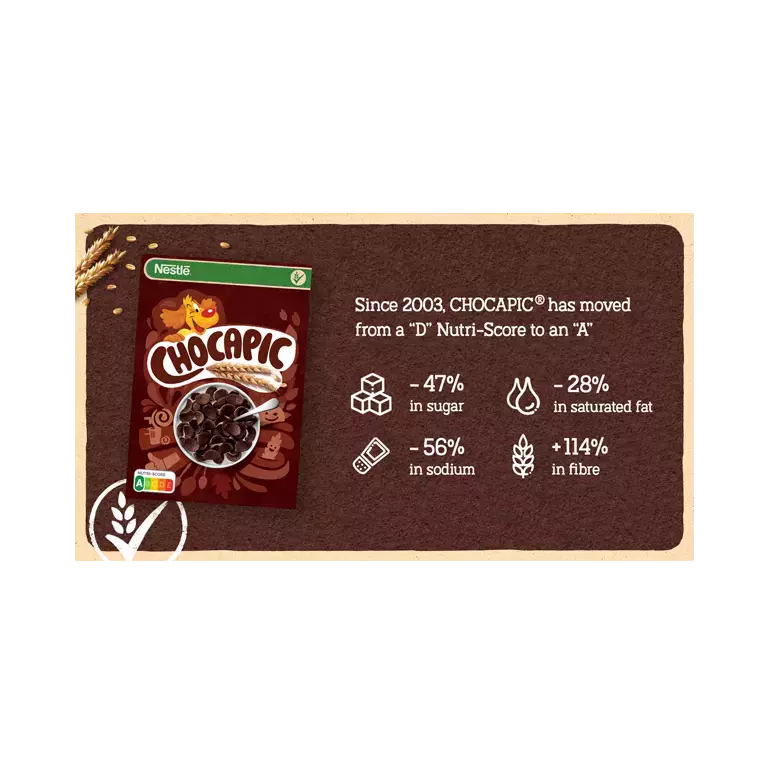
CHOCAPIC
RENOVATION JOURNEY
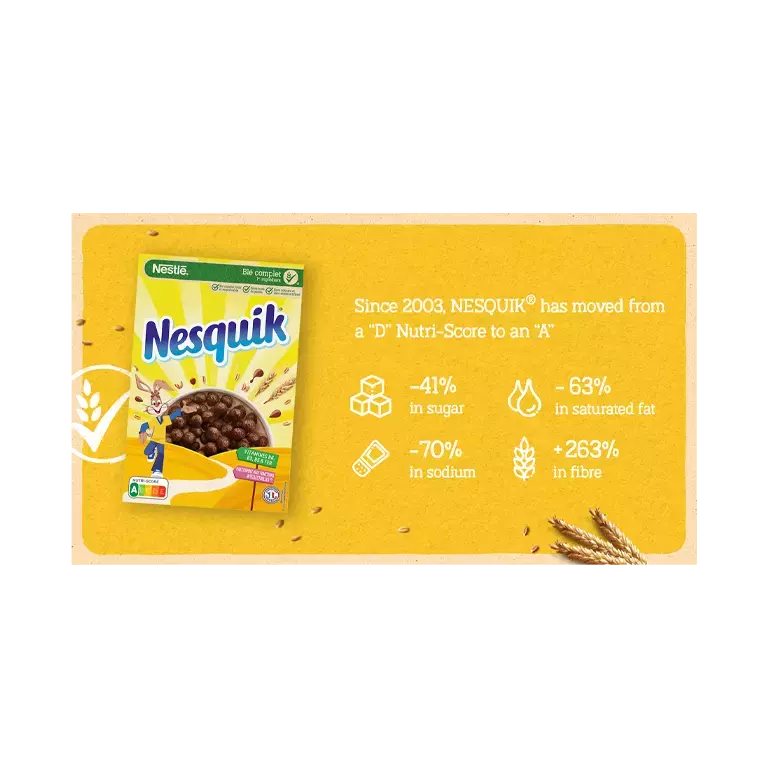
NESQUIK
RENOVATION JOURNEY
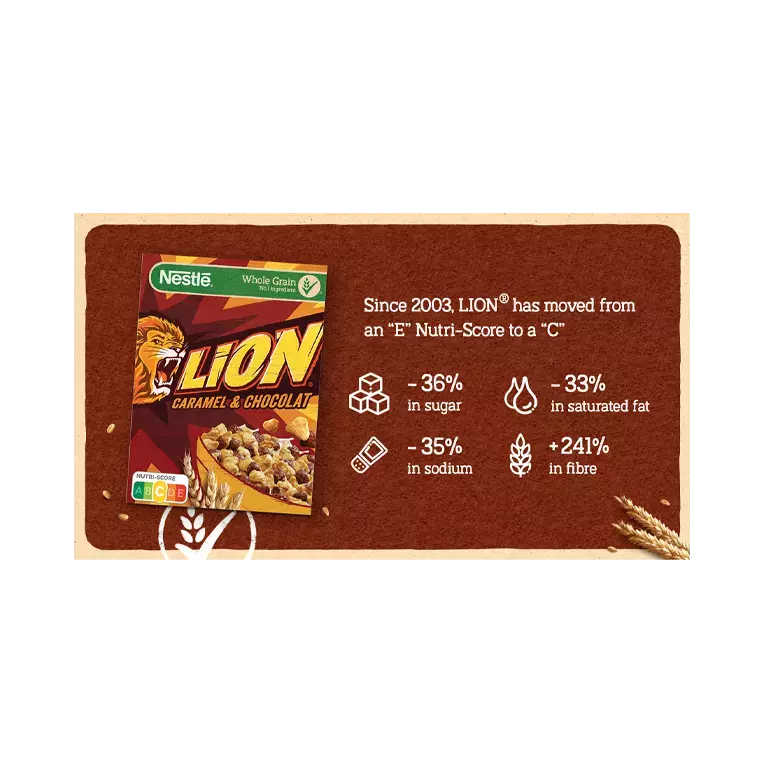
LION
RENOVATION JOURNEY
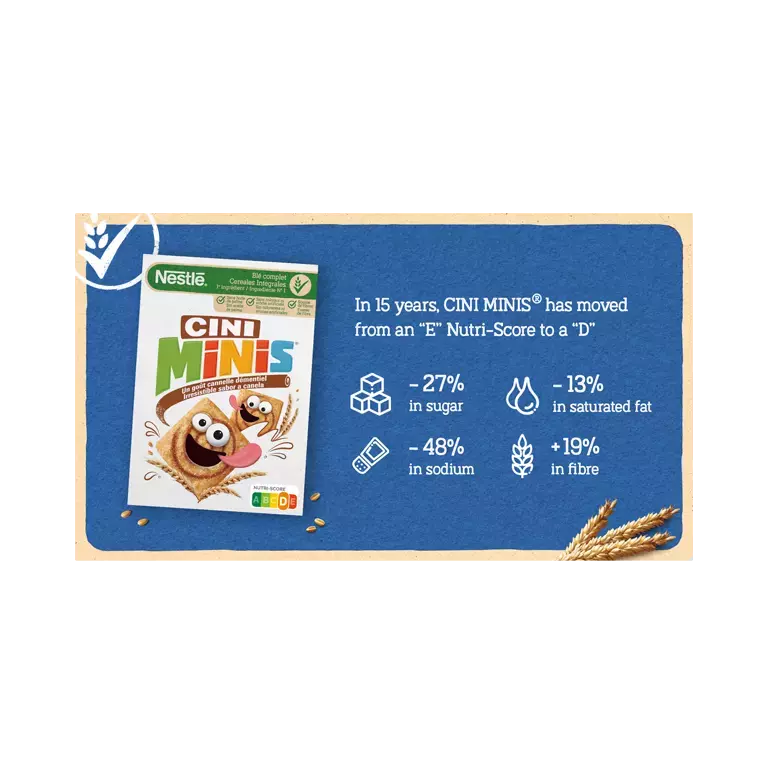
CINI MINIS
RENOVATION JOURNEY
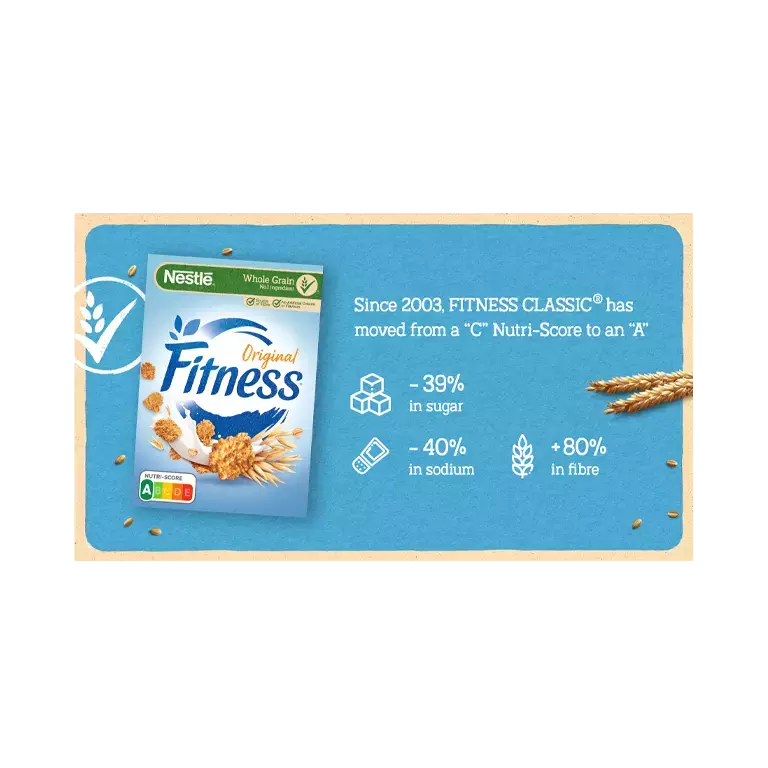
FITNESS
RENOVATION JOURNEY
PORTION GUIDANCE
All our breakfast cereals have clear and simple nutritional information on pack to make it as easy as possible for consumers to make more informed choices about breakfast. We’ve also created clear guidance to help with recommended portion size for the cereal you want to consume.
FRONT OF PACK LABELING (FOPL)
In every market we operate in, we follow the regulatory requirements needed for nutrition labelling in each country, and we are committed to implementing the relevant FoPL system requested by the local authorities. There are a number of nutritional labelling systems that are used around the world - Health Star Rating system (HSR), Multiple Traffic Lights (MTL), Nutri-Score, Reference Intakes (RIs) and Warning Symbol. Across all markets, we are committed to renovating our recipes to ensure they remain nutritious and healthy in order to achieve the best possible scores, in line with the relevant FoPL system.
MORE INFORMATION ON FRONT OF PACK LABELLING SYSTEMS ACROSS THE WORLD:
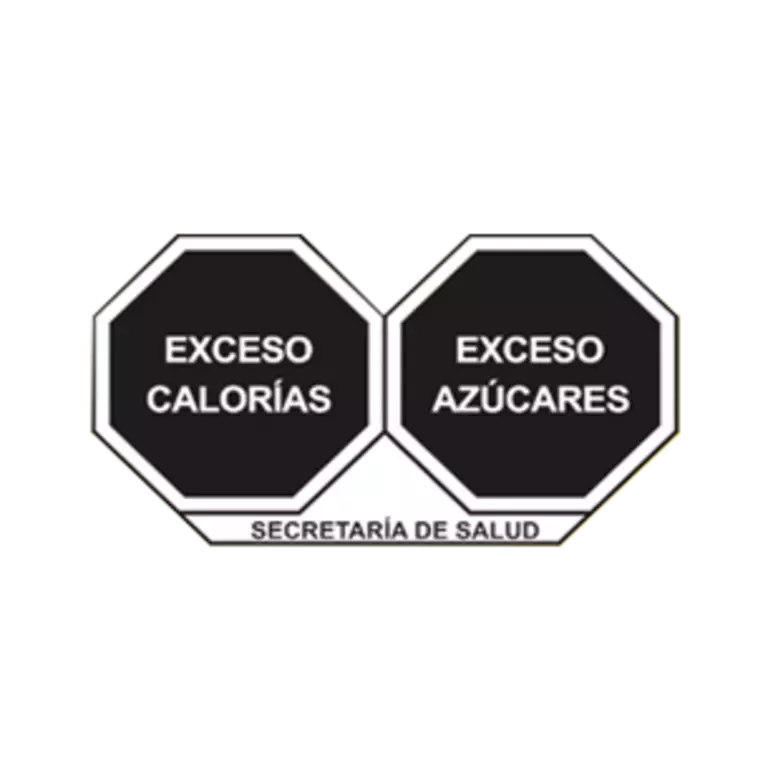
What is Front of Pack Warning Symbol?
Front of Pack Warning Symbol is a nutrition labelling scheme which advises when the level of nutrients concern for NCDs (sugar, calories, sodium and saturated fats) exceeds what is considered a healthy amount in pre-packaged foods.
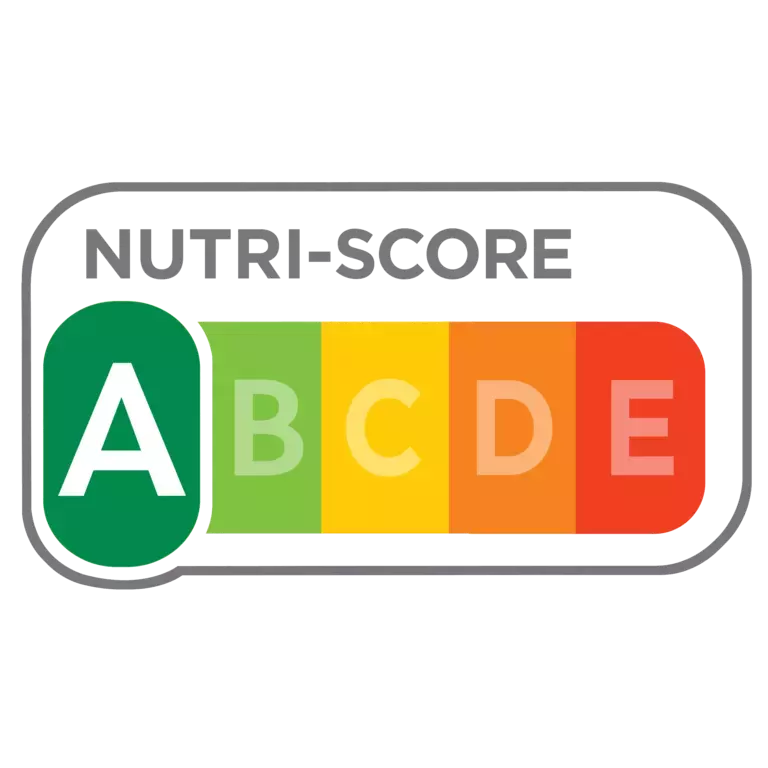
What is the Nutri-Score System?
Nutri-Score is a front-of-pack nutritional label that classifies food and beverages according to their nutritional profile. It is a color-coded system with a scale ranging from A (healthier choices) to E (less healthy choices). It was developed by French independent scientists and approved by French authorities to be use voluntarily. The system allows a holistic understanding of the nutritional quality of a product, to enable people to make informed decisions towards healthier diets.
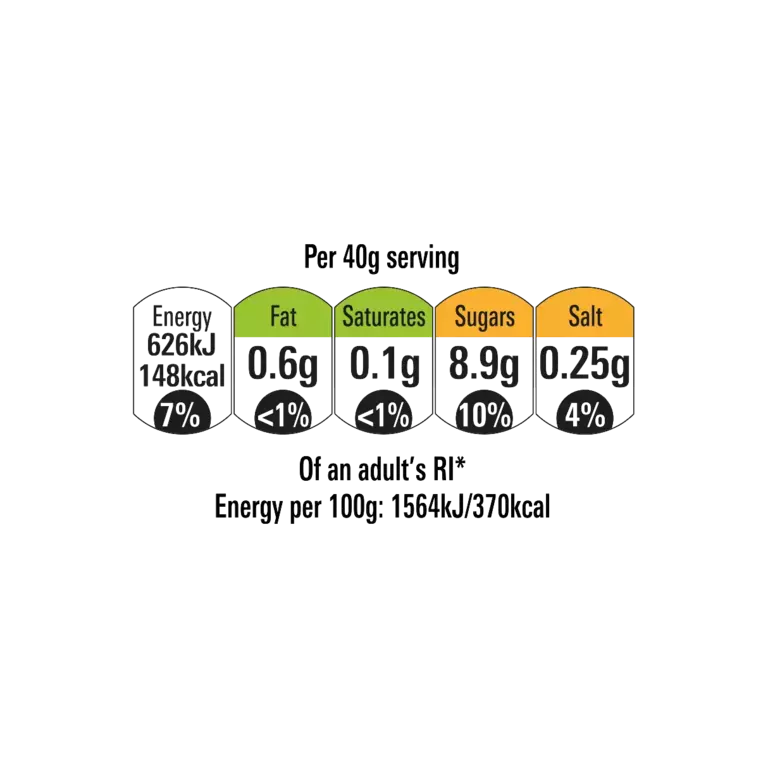
What is Colour-Coded Front of Pack nutrition labelling?
Colour-coded labels include systems such as the Multiple Traffic Lights (MTL) label that’s been used in the United Kingdom since 2005. Each colour is associated with the nutrient amount: red for a high amount, amber for a moderate amount, and green for a low amount. The scheme provides information for sugar, salt, fat and saturated fats, and informs the quantity of calories and kilojoules in that product.
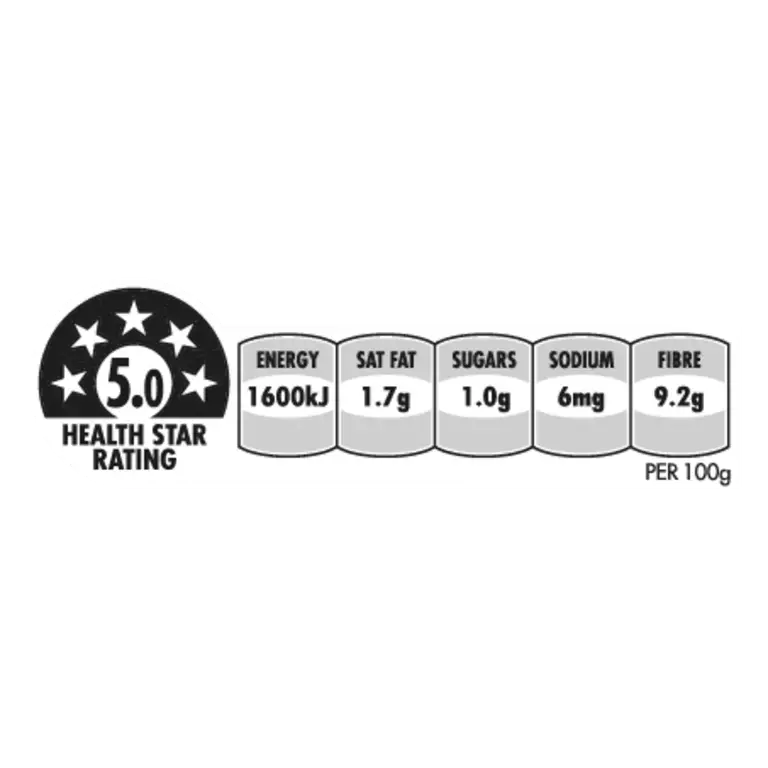
What is the Health Star Rating System? (Australia & New Zealand only)
The Health Star Rating is a front-of-pack labelling system that rates the overall nutritional profile of packaged food and assigns it a rating from ½ a star to 5 stars. It was developed by the Australian, state and territory governments in collaboration with industry, public health and consumer groups and was firstly used on food packages in 2014.
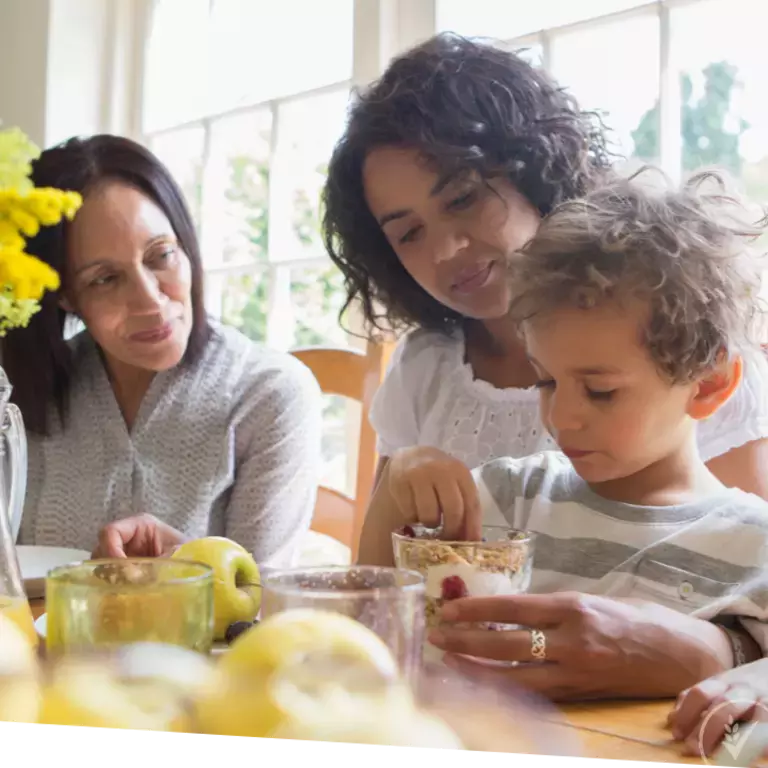
What else are you going to do to encourage better breakfasts?
We believe breakfast is the most important meal of the day And so, a balanced and nutritious breakfast is key. Thus, we are committed to offering our consumers healthy and tasty cereals. Breakfast refuels the body and brain with energy and provides essential nutrients to start the day, and we believe a healthy breakfast sets a positive tone for the day ahead.
We have many local initiatives that encourage a healthy breakfast, for example Program Preference in France.
